What Does 'Cowabunga’ From Teenage Mutant Ninja Turtles Mean?

This summer the Teenage Mutant Ninja Turtles return to cinema screens, more than 20 years after becoming an 80s cartoon phenomenon in ‘Teenage Mutant Ninja Turtles: Out of the Shadows’.
From the renaissance-inspired names, to April O’Neil’s yellow jump suit, the franchise has had it’s fair share of now memorable touches down the years. Most iconic perhaps was the “Cowabunga!“ catchphrase used by the ‘heroes-in-a-half-shell’ - but what the dickens does it actually mean? We’ve researched the origins of cowabunga and five more famous made-up movie words.
Cowabunga - Teenage Mutant Ninja Turtles
Sadly, it was not the oversized, martial arts-obsessed amphibians who made this particular word up in the first place, though you’d perhaps be forgiven for thinking so.
- Movies That Are Too Controversial For TV
- Controversial Casting Choices
- VFX That Changed Cinema
It’s possible that it derives from the Native American exclamation Kwa Bungu, but its popular use was thanks to US kid’s show Howdy Doody. Chief Thunderthud would often use the word, and it was later picked up by surfers in the 1950s and 60s. Peanuts also used the word in a 1965 comic strip in which Snoopy went surfing.
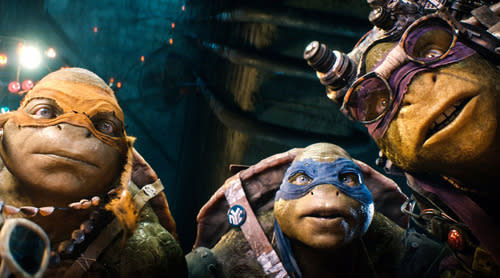
Fast-forward to the Turtles, and when the character of “party dude” Michelangelo was expanded for the cartoon show, he often used surfer slang such as "bummer”, “dude”, “bogus”, “radical”, “far-out”, “tubuloso”, “bodacious” and off course… “cowabunga”. Even the show’s creators must’ve been surprised when the word became a pop culture phenomenon. Aside from the Turtles picking it up Bart Simpson is also a fan, using it first in the episode ‘The Telltale Head’, only the eighth ever episode of the show.
Supercalifragilisticexpialidocious - Mary Poppins
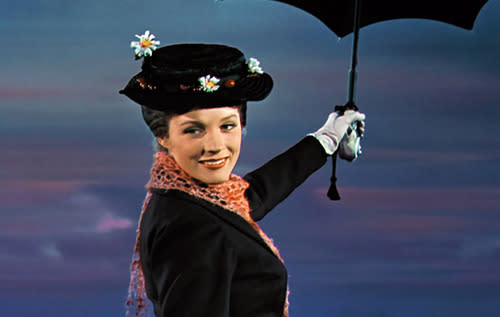
The quintessential movie nonsense word - to be used, as Poppins herself explains, as 'something to say when you have nothing to say’. Disney stalwarts the Sherman Brothers, who wrote the 1964 film’s music, remembered the word from their childhood. When split into its various root words, it’s said that it could actually mean 'atoning for educability through delicate beauty’. The first incarnation of the word however, came from columnist Helen Herman in The Syracuse Daily Orange, who coined the made-up word 'Supercaliflawjalisticexpialidoshus’ way back in 1931.
Bangarang - Hook
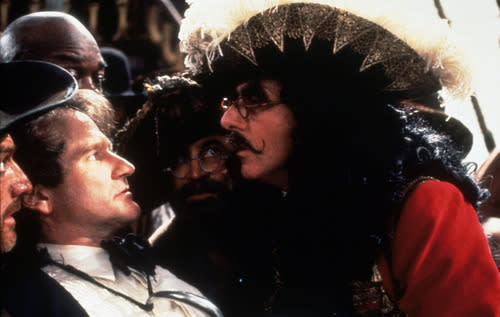
Popularised in the Robin Williams/Dustin Hoffman classic Peter Pan re-telling of Peter Pan, 'Bangarang’ is the rallying cry of the Lost Boys as they head into battle with the dastardly Captain Hook and his cohorts. The origins of the word are likely in Jamaican patois, however, where it can be used to describe a hubbub, uproar, disorder or other disturbance. US dubstep producer Skrillex picked up the word for his 2012 single Bangarang too, featuring the lyrics: 'Shout to all my lost boys/We rowdy/Shout to all my lost boys/Bangarang!“
Unobtanium - Avatar
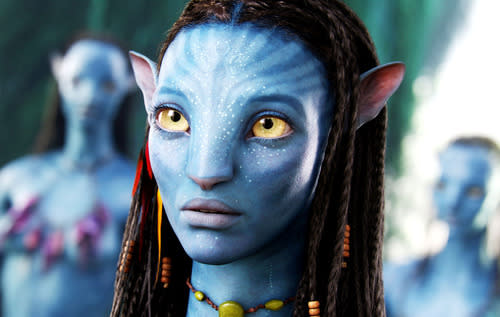
Sadly, James Cameron can’t take the credit for the name of the priceless ore mined on the moon planet Pandora in 'Avatar’. The word has been used for decades in engineering and fiction to describe a rare or simply impossible material. Though it’s often used humorously, since the 1990s it’s entered the engineering lexicon to describe materials that do exist but are hard to source. Other similarly used terms include wishalloy and eludium. Maybe they’ll feature heavily in 'Avatar 2’.
Embiggen and Cromulent - The Simpsons

The Simpsons lays claim to a number of memorable neologisms. The two above appear in 'Lisa The Iconoclast’, in which teacher Edna Krabappel questions the validity of Springfield’s motto 'A noble spirit embiggens the smallest man’, adding she’d never heard the word embiggen before moving to Springfield. Miss Hoover defends the word, saying: "I don’t know why; it’s a perfectly cromulent word.” In fact, embiggen has been used as a verb in the English language back in 1884, and has since been used in scientific papers. Cromulent was made up by Simpsons writer David X. Cohen, and has since appeared in Dictionary.com’s 21st Century Lexicon, meaning 'fine’ or 'acceptable’.
Muggle - Harry Potter series
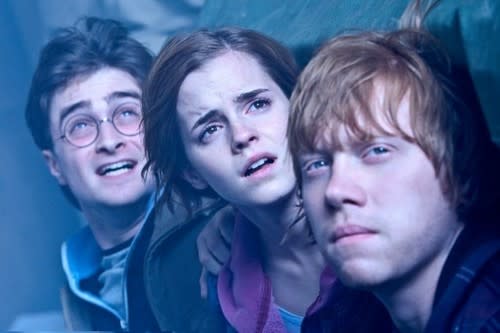
Those of us who are non-magical are muggles in the Potter universe. Author JK Rowling based it on the word 'mug’, but softened it up a bit by adding another few letters on the end. It appears to have other meanings though. Jazz legend Louis Armstrong recorded a track of the same name, as it was a slang term for someone who uses marijuana in the jazz scene of the 1920s and 30s.
- 8 Huge Stars Who Appeared In Murder She Wrote
- Movies That Were Funded By Dictators
- Greatest Movie Moments That Never Happened

 Yahoo Movies
Yahoo Movies 
